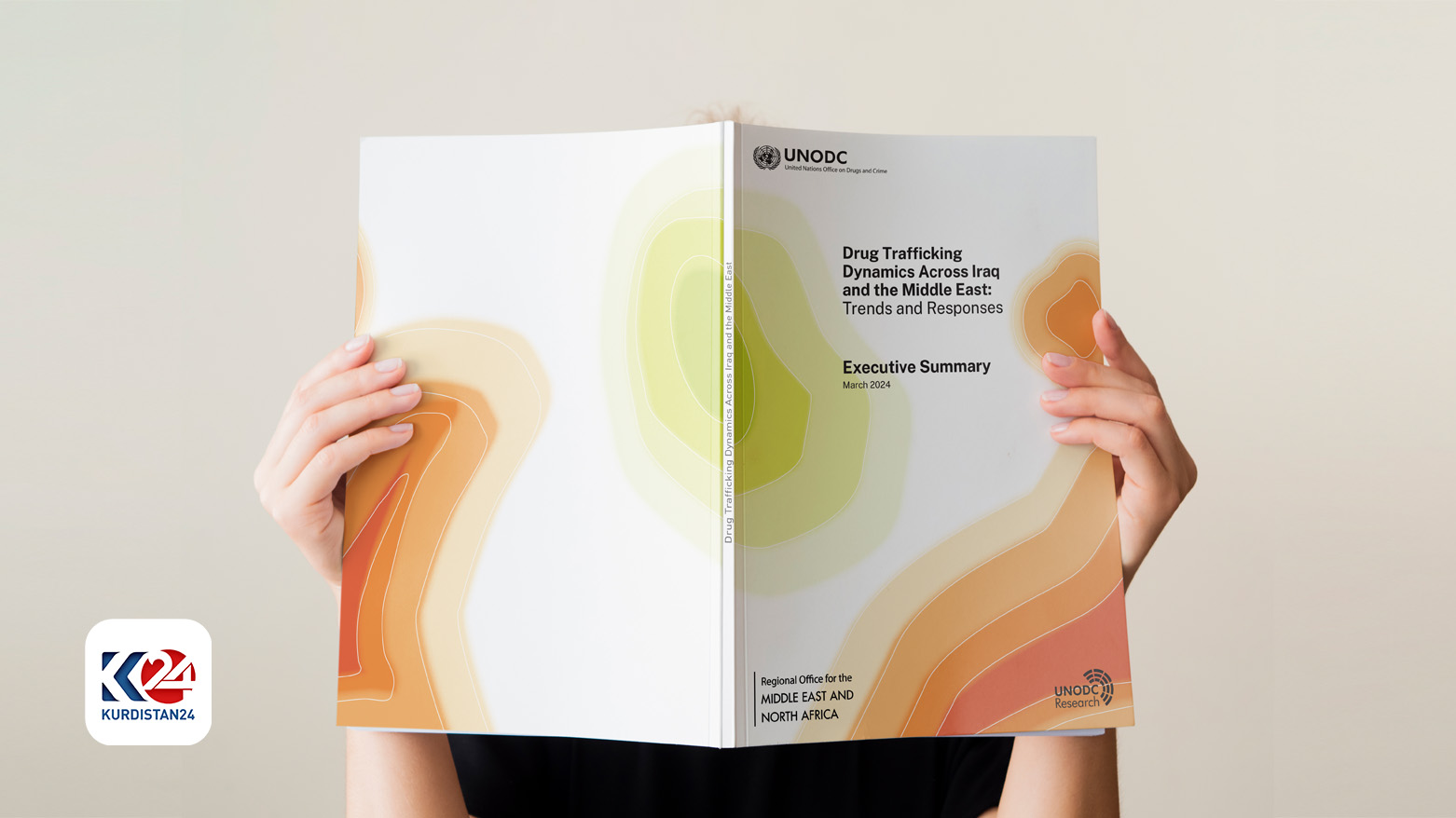Surge in drug trafficking across Iraq as UN report warns of growing captagon trade
The report draws attention to the alarming increase in "captagon" seizures across Iraq. Between 2019 & 2023, Iraq recorded a nearly 3,380 percent surge in the interception of these amphetamine-based tablets, seizing over 4.1 tons of the drug in 2023 alone.

ERBIL (Kurdistan24) – A new United Nations report reveals a dramatic rise in drug trafficking across Iraq and the Middle East, highlighting the proliferation of amphetamine-type stimulants (ATS), particularly "captagon," over the past five years.
The report, titled "Drug Trafficking Dynamics Across Iraq and the Middle East (2019–2023): Trends and Responses," outlines the complex challenges faced by Iraq in combating this illicit trade, with potential implications for the entire region.
The 2023 World Drug Report draws attention to the alarming increase in "captagon" seizures across Iraq. Between 2019 and 2023, Iraq recorded a nearly 3,380 percent surge in the interception of these amphetamine-based tablets, seizing over 4.1 tons of the drug in 2023 alone.
The report also points to the emergence of a methamphetamine market in the region, with a noticeable uptick in the substance’s seizures during the same period.
Iraq’s Strategic Role in Drug Trafficking
Iraq's geographical position, bordering countries like Iran, Syria, and Saudi Arabia, has made it a critical node in the regional drug trafficking network. The country acts as a bridge between production hubs in Southwest Asia and markets in the Arabian Peninsula and Europe.
Traffickers exploit Iraq's extensive land borders, leveraging various routes that span through the northern, central, and southern regions of the country.
These routes facilitate the transit of methamphetamine, heroin, and "captagon," turning Iraq into a key conduit for drugs flowing between Asia, the Arabian Peninsula, and Europe.
Rising Threat from Armed Groups and Regional Instability
The report also warns that armed groups with cross-border affiliations are playing an increasingly significant role in facilitating drug trafficking, particularly in regions that have witnessed prolonged conflict and instability.
The involvement of these groups has further complicated efforts to curb the trade, with Iraqi officials citing challenges in maintaining border security and limiting corruption within law enforcement agencies.
The rise in drug trafficking has been accompanied by an increase in local drug consumption, with the number of individuals seeking treatment for substance use disorders doubling from 2017 to 2021.
Reports indicate a surge in methamphetamine use in Basra and "captagon" use in regions such as Al Anbar and Baghdad, intensifying concerns over the societal impact of the drug crisis.
Iraq’s Counter-Narcotics Efforts
In response to these challenges, Iraq has implemented several counter-narcotics initiatives, including the establishment of its National Strategy on Narcotics and Psychotropic Substances (2023–2025).
The country hosted its first regional event in 2023 to coordinate efforts among neighboring countries in disrupting drug trafficking networks.
Despite these efforts, the report emphasizes that the current measures remain in their early stages and require further regional collaboration and international support to address the growing threat.
The UN urges Iraq and its regional partners to adopt a coordinated approach, stressing the need for enhanced data collection and stronger law enforcement capabilities.
This collaboration, alongside efforts to address corruption and improve treatment options for those affected by drug use, is seen as crucial to stemming the flow of illicit drugs and mitigating their impact on regional stability.
The rise of drug trafficking in Iraq, especially the sharp increase in "captagon" trade, is a stark reminder of the broader security challenges facing the region.
The report also identified Sulaimani province as one of the main corridors for drug trafficking in Iraq, with the region serving as a primary route for the smuggling of heroin, opium, and methamphetamine. This growing illicit activity has raised concerns among local and international authorities, as Iraq faces a surge in drug trafficking and use, especially in recent decades.
Read More: Sulaimani province emerges as key drug trafficking corridor in Iraq
As the Iraqi government intensifies its efforts to combat this growing crisis, the need for a united front against transnational drug trafficking is more pressing than ever.
